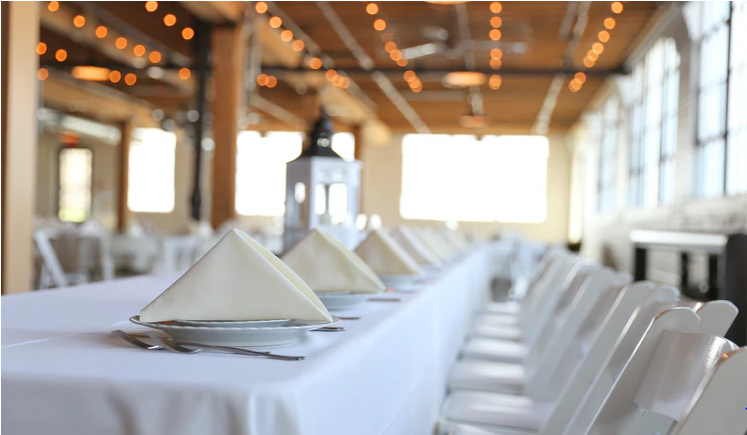Table of Contents
Are you a great cook or baker? Well, that does not guarantee that you have what it takes to run a successful catering business. If you are looking for “How to start a catering business?”, then this blog is for you, You will need to do a step-by step research plan before launching your business. This will help you understand if you are likely to pursue your dream and make it work. This article will give you a step-by-step guide on how to start your own catering business.
Why Catering is the Best Business to Start?
Catering business is the best to start because of its high profitability. The cost of producing goods is relatively low, ranging from 10% to 15%. Once you master the recipes, food is super easy to produce, and keeping consistency in quality is relatively simple. Other advantages include the following.
- High demand
- High turnover rate
- Catering is highly fulfilling
- Keeping your customers is relatively easy
Step by Step Guide on How to Start a Catering Business
Step 1: Do a market research

Start by checking out who else is offering the catering services in your area. You will need to check out their menu, prices, customers, and the list of services they offer. Visit their website to try and check out their unique selling benefits.
Catering customers are not just looking for food; they are also looking for convenience, affordability, unique menus, white-glove service, or corporate style. You could conduct a short survey with your friends to find out what they look for in caterers and what they dislike.
Step 2: Identify your potential customers

You can call a few of your contacts or simply cold-call a few potential customers and ask them what they would like to get from caterers.
Step 3: Choose your Niche
From your market research and knowledge of your potential customers, you should decide what kind of catering you want to offer. Knowing your potential customers, their needs, and price-range preferences, decide what you want to offer and how you want to offer it to attract enough customers for a desirable profit. You can either decide to narrow down on corporate events or offer a wide variety of catering services. Do not try to be everything to everyone in your catering business. Suppose you feel that you want to offer a wide variety of catering services. In that case, you will need to create different pages on your small business website and make different brochures that market each service separately.
Some niche options that you have as a caterer are listed below.
- Corporate events (banquets, cocktail parties, golf outings, executive luncheons)
- Children parties
- Weddings
- Boxed lunches
- Concession stands
- Adult parties ( dinner parties, bachelorette, anniversaries, birthdays, and holidays)
- Concerts, festivals, and sports events
After identifying your niche, you can further narrow down your services to a specific type of food, for instance, healthy foods, barbeque, affordable menus, vegan, or upscale menus.
Step 4: Brush up on Small Business Basics
There are a number of common procedures that you need to undertake as a new businessman, regardless of your type of business. The tasks include,
- Securing a business permit from your local government
- Getting a post office box for your business
- Setting up an email address and build a website.
- Setting up a corporation and securing liability insurance.
- Check with your local authority for any zoning requirements for your type of business.666666
- Check the homeowners association rules for your customers
- Contact your state health department for the requirements to get a food service license.
- Check that your kitchen, storage, serving equipment, and transportation services meet the specified requirements.
- Some states will require you to become a certified food manager by taking a course or hiring one to help you prepare and serve food.
Step 5: Run Some Numbers

Find out the costs involved in starting and running a business and create a budget for it. Some of the costs you should budget for are upgrading your kitchen and cooking equipment, getting your business licenses and permits, marketing materials, and upgrading your office equipment. Depending on how large you want to venture, you should budget for at least $10,000.
Step 6: Write a Business Plan
Work on creating a documented business plan by answering all the questions related to your business venture before starting your business. Answering these questions at the beginning will be much more helpful to you than trying to address them later on as they arise.
How Much Does it Cost to Start a Catering Business?

Start-up costs may naturally vary depending on many factors like location, and size of business. The costs will generally cover equipment, transportation, licensing, and the marketing needs of your business. A budget of $10,000 to $50,000 is recommended to start up your catering business.
One thing you need to keep in mind is that researching how to start a catering business does not compel you to start a business. Coming up with a business plan does not cost a dime, or compel you into starting a company. Take your time. Most of your research can be complete in a week, but you can decide not to move that quickly. You can as well divide your planning and research into bite-size chunks that you can handle, even for several months, if it helps you get a better feel for what it will take to pursue your dream business. You can set multiple deadlines for you to work on different sections of your business plan, this is more convenient and achievable than setting a single end date with no road map to get through.
It is, however, advisable to work on your business plan at the time that you are still excited and interested in following your dream. This way, it will surprise you how soon you can gather the relevant information and know what it takes to launch your catering business.

